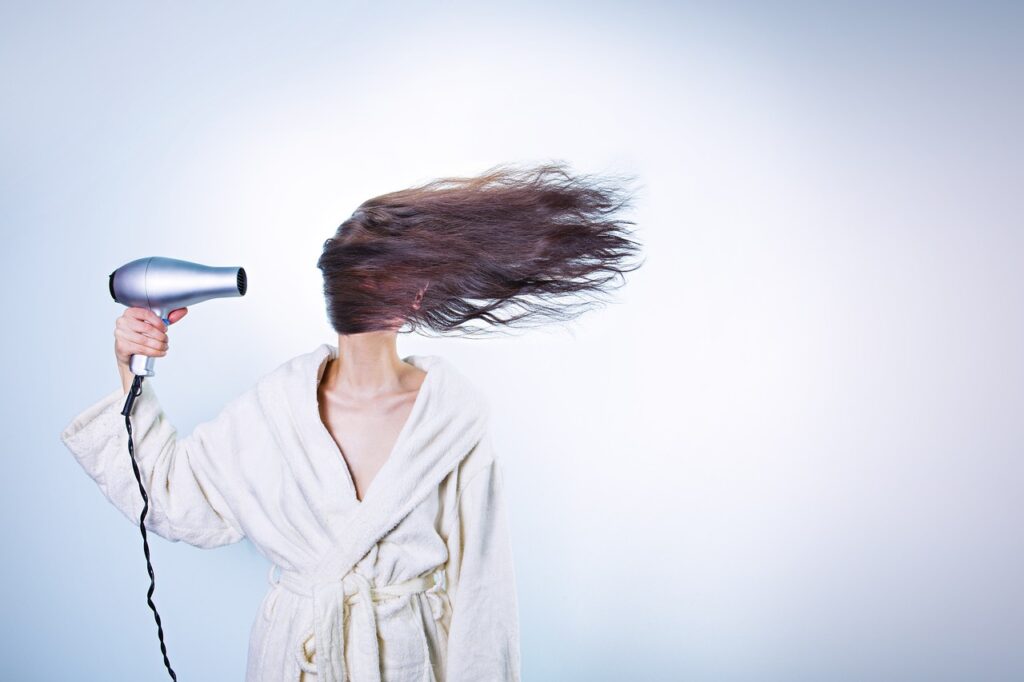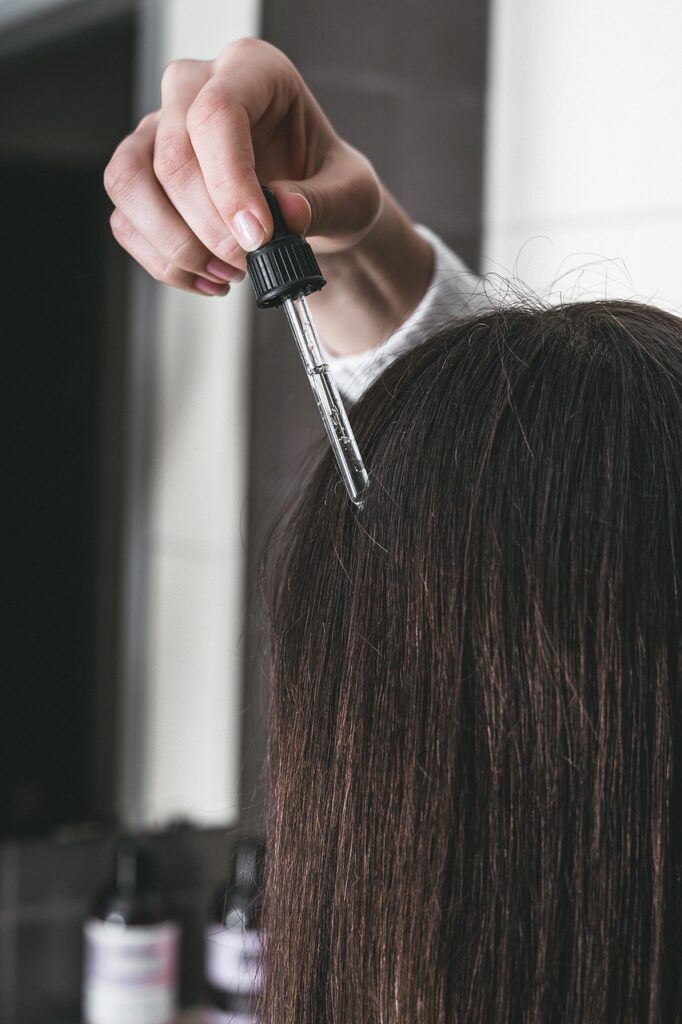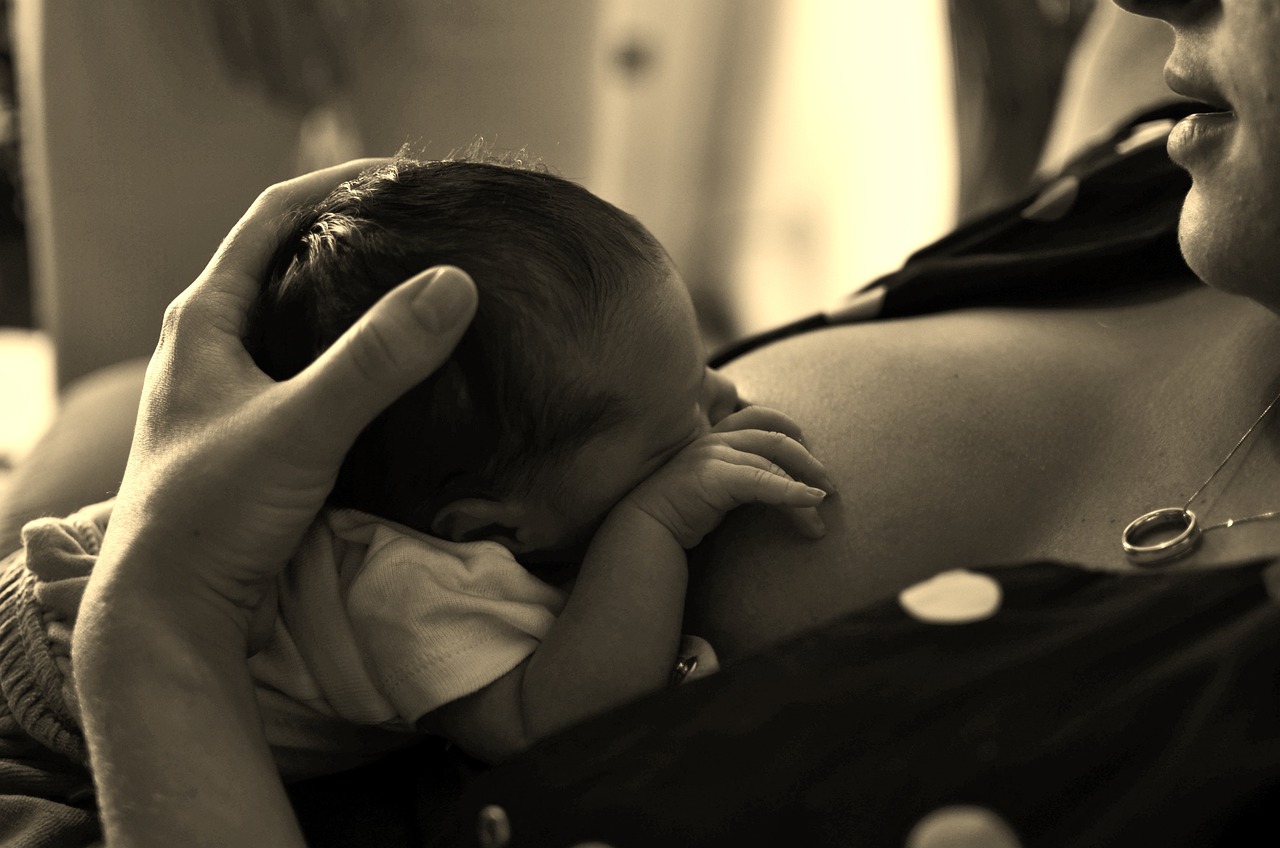Postpartum Hair Loss

After the birth of a new baby, many women think that body changes are mostly behind them, as they adjust back to their new normal. Enter postpartum hair loss. As common as postpartum hair loss is, a surprisingly large number of women are shocked to begin shedding hair postpartum. According to a recent study, nearly 92% of postpartum birthing people experience some level of postpartum hair loss.
So what exactly causes postpartum hair loss? There is sadly still so much we do not understand about the human body, and even more so women’s bodies. We don’t have a definite answer as to WHY postpartum hair loss occurs, but some scientific hypothesis include:
- A steep rise in cortisol (the stress hormone) in the end of the third trimester, as well as through birth & postpartum
- A steep decrease in estrogen after birth
- Inflammation in the body post-birth affecting the natural hair growth cycle
Some research does also point to a correlation between breastfeeding and postpartum hair loss. However, with the average start of postpartum hair loss take place around 2 months postpartum, ceasing breastfeeding in order to lessen the risk of hair loss will likely have minimal effect, and the benefits of breastfeeding significantly outweigh these risks. In addition, many women choose not to breastfeed, or must stop breastfeeding early for a myriad of reasons, and the majority of these women experience hair loss as well.
There is also a slight correlation between preterm labor and a higher incidence of postpartum hair loss. Again, this is something we generally cannot control. This is simply something to be aware of if you delivered your little one preterm.

Effective Treatments for Postpartum Hair Loss?
And unfortunately, the bad news seems to continue. Although postpartum hair loss is exceedingly common, we don’t really have any super effective ways to treat it.
Most over-the-counter remedies are not actually proven to help, although some women do claim to notice a slight difference when using certain shampoos, creams and oils.
However, one very simple method HAS been proven to make a small difference in hair growth, whether that be postpartum or otherwise: massage.
In a study done to find the effectiveness of massage on hair thickness, it was observed that men receiving a scalp massage using a special tool for 4 minutes per day for 24 days DID have a statistically significant difference in hair thickness. Basically, stretching the cells on the scalp through massage causes them to widen, and produce thicker hair follicles.
So, although some women do tout rosemary oil massages as an effective means for hair regrowth postpartum, it may actually be the massage itself, versus the oil, that causes the change in hair growth. And who doesn’t enjoy a great scalp massage?
Emotional Toll of Postpartum Hair Loss
This may all make sense on a scientific level, but it doesn’t change the fact that postpartum hair loss is HARD. Like, really hard.
Going through birth causes so many changes in our body, and we may not recognize the person staring back at us in the mirror. Top that off with massive hormonal shifts and sleep deprivation, and losing our hair may just be the thing that sets us over the edge.
It is important not to discount the significance of postpartum hair loss. As women, our hair is often a major component of who we are. Societal expectations from a young age cause many of us to spend a significant amount of time and money maintaining our hair, and we become accustomed to it looking a certain way. Losing our hair postpartum can feel like another thing completely out of our control.
For postpartum moms, I encourage you to talk to other moms who have been in your shoes. Undoubtedly, they were also fraught with helplessness, losing their hair with a newborn baby in arms, milk stains on their shirt, and 3-day-old crusty spit-up on their back. Just knowing you are not the first (or the last) mom to experience this does help. And, seeing a friend with luscious locks who can recount the days of hair loss gives us hope that we will get back there as well!
For partners, please, take the concerns postpartum moms bring to you about their hair loss seriously. It is immensely difficult to lose control over yet another aspect of their identity, and your reassurance can go a long way in showing them they are beautiful and loved.
As far as treating postpartum hair loss, you may find some results, or comfort measures in:
- Giving yourself (or asking your partner to!) a scalp massage as often as possible
- Invest in a several super cute headbands to cover sparse areas
- Crochet bandanas are also super cute and trendy!
- Being careful not to weigh down existing hair with excess conditioner or product
- Getting a cute new cut that helps mask sparse areas

Ways to Improve Hair Quality and Regrowth
Although postpartum hair loss may be inevitable to a degree, there are some things you can do to improve the quality of your existing hair and ensure new hair growth returns quickly and remains healthy!
A recent study shows that consuming a fish-derived collagen supplement had a significant effect on hair regrowth. Collagen can often be purchased in a powder form and added to smoothies or other drinks, which is a great reason to get your daily smoothie in! Some women also enjoy adding collagen to snacks like protein balls, which you can also pack with breastmilk-enhancing ingredients like oats, flax and nut butter.
In addition, washing your hair and coloring it less frequently can be beneficial in preserving the quality of hair. And although we may see less frequent showers and trips to the salon postpartum as a downfall, this may actually prove beneficial for hair regrowth!
As difficult as this season may feel, rest assured that postpartum hair loss is temporary, and something most other moms you know have also experienced. And, the good news is that for most moms postpartum hair loss will cease by about 8 months postpartum. Hang in there, mama!

